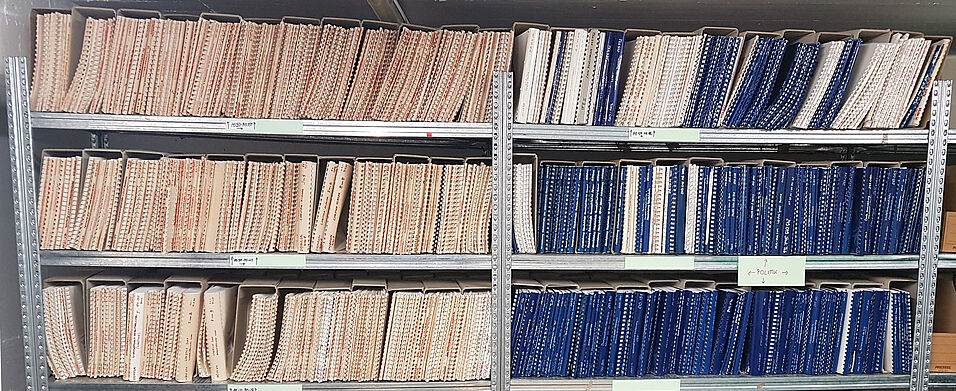The market research company GfK Austria was founded in 1950. Back then it still operated under the name Fessel-Institut. Over the decades, GfK Austria has produced thousands of surveys on a wide range of topics relating to Austrian society. The surveys provide a good insight into the economic and political issues facing the Second Republic in recent decades. In 2018, when the institute moved to a new location, AUSSDA took over a large part of the archive of the social science department of GfK Austria. The shared aim: to make the archive treasure available for non-commercial research.
Surveys on economics and politics
The studies deal with numerous economic and political issues of the Second Republic. In particular, the surveys report on the attitudes of Austrians towards news events, political topics and consumer products. In addition to providing insights into the opinions of Austrian society, the reports also offer added value concerning the history of social science methods: Since the studies cover six decades, they also allow for the development of commercial survey research to be traced.
New ways to archive data
AUSSDA primarily views itself as an archive for digital data. However, with AUSSDA being located at the Vienna University Library, there is also an appreciation for physical stock. New internal processes had to be developed in order to record the GfK-Austria-Archive studies. The metadata were first stored in a spreadsheet and then automatically imported into our AUSSDA Dataverse via pyDataverse. The first 100 volumes were digitised via the e-books on demand service of the university library.
More on-demand digitalisation
The first 100 PDFs from around 80 studies are already available for download. Only researchers with non-commercial scientific intentions may use the studies. In the coming weeks and months we will gradually collect the metadata of further publications and publish them in the AUSSDA Dataverse. New studies will be scanned and made available as soon as researchers notify us of their interest in a specific study.

